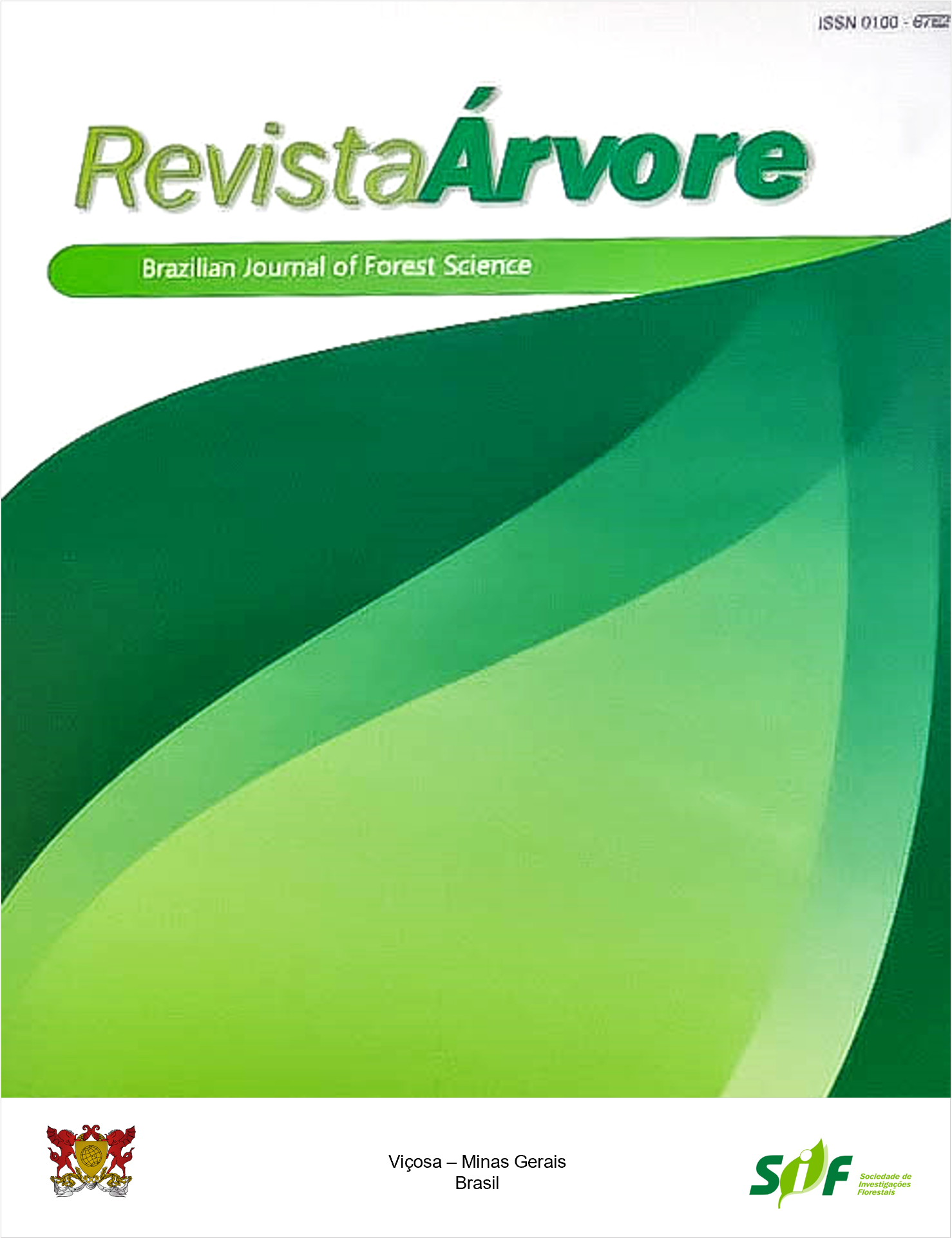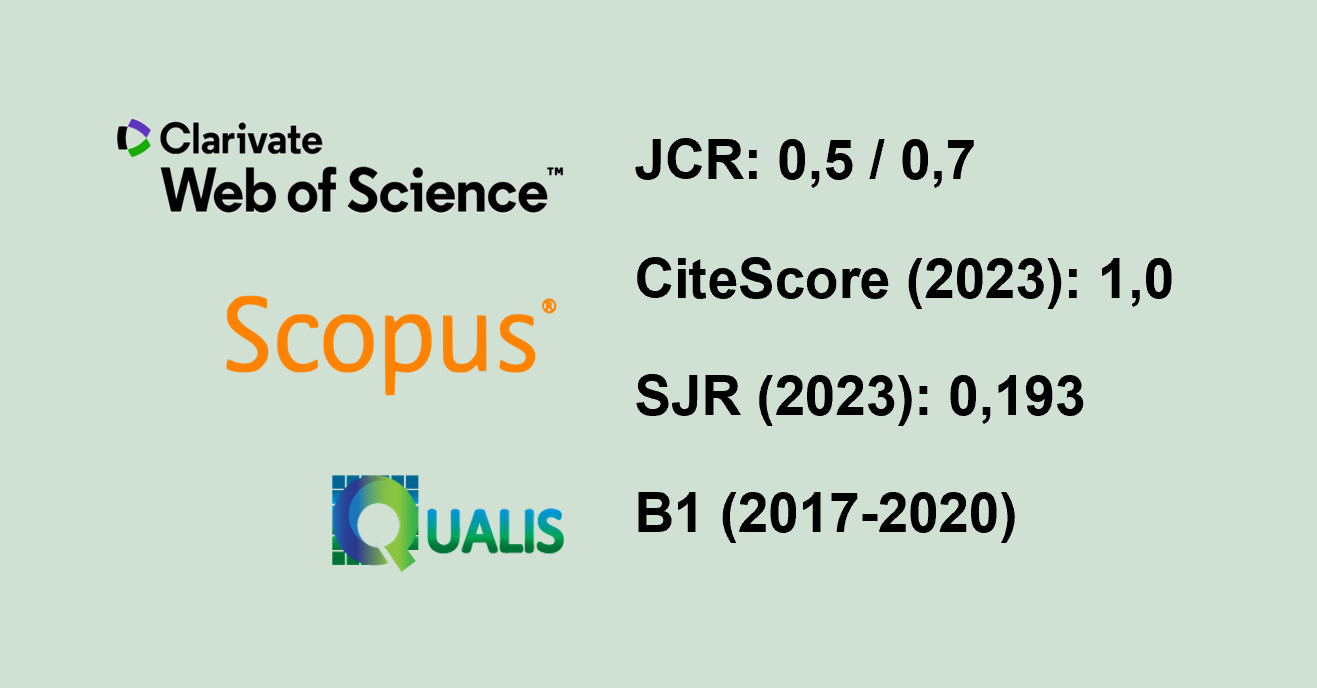Elevated CO2 induces down-regulation of photosynthesis and alleviates the effect of water deficit in Ceiba pentandra (Malvaceae)
Keywords:
Biomass accumulation, Water use efficiency, Photosynthesis acclimationAbstract
The simultaneous effect of elevated CO2 concentration and drought on trees is still under investigation in the Amazon. We evaluated the effect of CO2 levels (400 and 800 ppm) and water regimes (50% and 100% soil field capacity) on photosynthetic traits, chlorophyll fluorescence, and total biomass accumulation in Ceiba pentandra. In well-watered plants, light-saturated photosynthesis (PN-sat) increased in plants exposed to elevated CO2, but both PN-sat and stomatal conductance decreased in response to water deficit. The maximum carboxylation rate of Rubisco declined under elevated CO2, which indicates down-regulation of photosynthesis at elevated CO2. The Fv/Fm ratio was not affected by treatments. Notwithstanding, total plant biomass and leaf area were reduced by 34-37% under water deficit, but they were not affected by CO2 levels. The PN-sat values measured in well-irrigated plants at ambient CO2 were similar to those observed in plants subjected to elevated CO2 and water deficit (p = 0.26). We concluded that the effect of water deficit on PN-sat was mitigated by elevated CO2. These results suggest that the increase of atmospheric CO2 concentrations associated to climate changes can at least partly offset the negative effect of drought in this multiuse and widely distributed species.
Keywords: Biomass accumulation; Water use efficiency; Photosynthesis acclimation.
Downloads
Published
How to Cite
Issue
Section
License
All authors agreed to submit the work to Revista Árvore and granted the exclusive license to publish the article. The authors affirm that it is an original work and has not been previously published elsewhere. The scientific content and opinions expressed in the article are the sole responsibility of the authors and reflect their opinions, not necessarily representing the opinions of the editorial board of Revista Árvore or of the Society of Forest Investigations (SIF).




